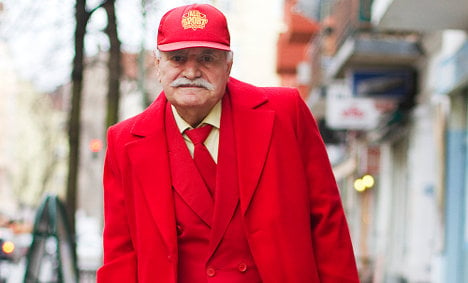Zoe Spawton, 29, who is a “food and documentary photographer” according to her website, also works as a waitress at a café in Berlin’s trendy Neukölln neighbourhood. After weeks of spotting a well-dressed elderly man pass by the café every morning and greeting him politely, she mustered up the courage to ask for permission to photograph him and put the pictures on her blog last summer.
“He thought it was funny at first. And I think he was a bit proud. Now he’s the one giving me instructions and showing me where he wants to pose, though he doesn’t allow it every day,” Spawton recently told the website of Der Spiegel magazine.
Ali, father of 18 and originally from Turkey, moved to Germany 44 years ago. Trained as a medical doctor, he switched fields years ago and still works six days a week for a tailor. The octogenarian apparently owns over 80 suits, several of which he has stitched himself.
Since the blog went viral, it attracts more than 120,000 visitors a day. And with good reason – sometimes Ali dons a full denim look; sometimes he’s all dapper in a suit with a matching tie and hat. On other days, he colour-themes his outfits in cheery hues of purple or red.
Even though Zoe doesn’t speak much German, and Ali speaks little English, the two manage to communicate with each other and have formed a friendship. “We can’t discuss deeper things, though I still have the feeling that we are close,” Spawton said.
Spawton has not disclosed Ali’s full name or the name of the café she works at to maintain his privacy. But whenever Ali puts on his fantastically bright all-red suit and saunters down the streets of Berlin, it might well give him away.
The Local/mb



 Please whitelist us to continue reading.
Please whitelist us to continue reading.
Member comments